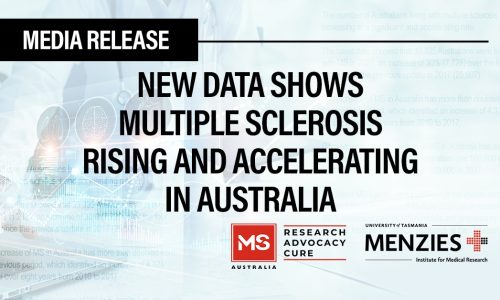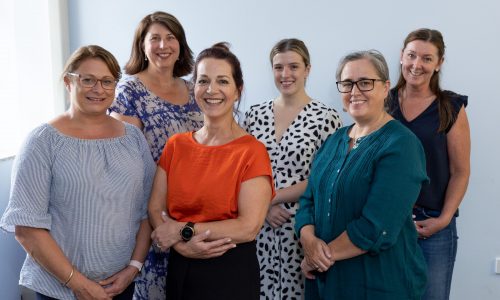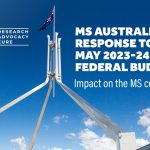- The Australian MS Longitudinal Study (AMSLS) is a nationwide survey that tracks the lived experience of MS in Australia
- The prevalence of MS has risen rapidly, we have a critical shortage of specialist MS Nurse support, and we need a better NDIS for people with MS
- Using the AMSLS data, MS Australia is working hard with government to address the unmet needs
The Australian MS Longitudinal Study (AMSLS) is a survey-based study that tracks the lived experience of around 3000 Australians with MS.
In collaboration with epidemiologists, neurologists, scientists, and health economists at the Menzies Institute for Medical Research, University of Tasmania, its primary objective is to help Australians live well with MS by understanding their experiences.
This involves a deep dive into the diverse impacts of MS, identifying what works well and where we need new solutions.
The AMSLS surveys cover topics as far-reaching as the prevalence of MS across Australia through to the innermost impact of MS on a person’s sense of self.
The AMSLS aims to answer questions such as:
- Does MS affect sleep?
- Can we get a better understanding of MS pain to guide the development of effective new treatments?
- How does MS affect employment?
- Do Australians have adequate access to MS health care?
Importantly, the AMSLS also seeks to identify areas where government support can help fill the gaps in care for people with MS.
Evidence to leverage government support for MS
The AMSLS is playing a significant role in advocating for the needs of people with MS by generating compelling evidence.
Our recent report on the Health Economic Impact of MS revealed an alarming trend: the number of Australians with MS is increasing at an accelerating rate, with a 30% increase in the four years from 2017 to 2021.
The total associated costs for all people with MS in Australia have also risen considerably, from $1.75 billion in 2017 to $2.5 billion in 2021.
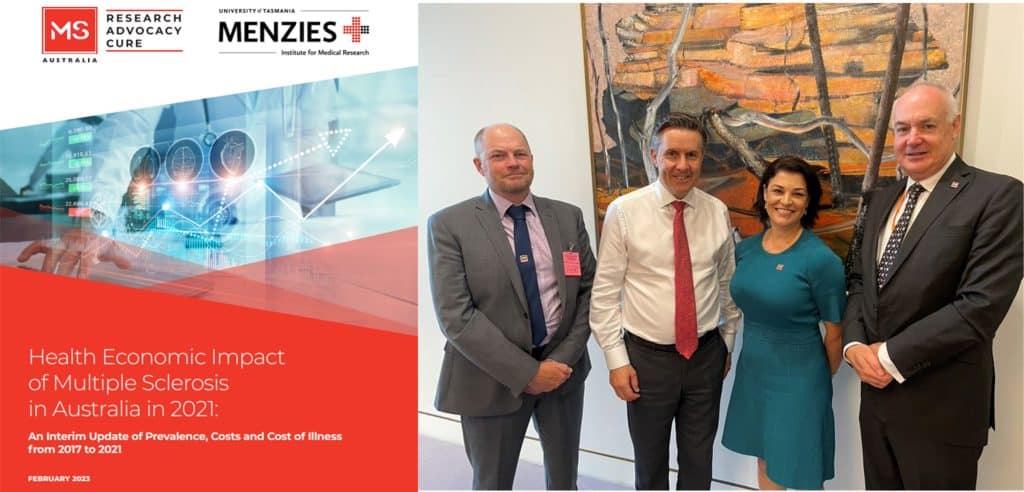
(L to R): President of MS Australia, Des Graham; Minister for Health and Aged Care, The Hon Mark Butler MP, MS Australia Head of Research, Dr Julia Morahan; and MS Australia CEO Rohan Greenland, Parliament House, 27 March 2023
In a meeting with the Hon Mark Butler MP, Minister for Health and Aged Care last month, MS Australia discussed the most pressing needs of the MS community.
“The latest data shows an obvious urgent need for further government investment in MS research,” said Rohan Greenland, CEO of MS Australia, “so we can first put the brakes on this acceleration, and ultimately stop MS in its tracks.”
This meeting has opened the door to further progress MS Australia’s advocacy efforts towards funding for essential neurological disease research through the Medical Research Future Fund, improved collection of MS data through the Australian Institute of Health and Welfare, and a better National Disability Insurance Scheme (NDIS) for people with MS.
Advocacy for MS Nurse Care in Australia
The crisis in specialist MS Nurse care in Australia was also high on the agenda with Minister Butler, following our AMSLS report last year showing that 32% of Australians with MS do not have access to an MS Nurse.
The AMSLS study also demonstrated that people without access to an MS Nurse experience significantly higher severity of MS symptoms.
MS Australia discussed the provision of MS Nurse care not only through a better NDIS, but via Federal-State partnerships to provide nurse care through essential hospital MS outpatient clinics.
We again presented this compelling data in a meeting in February with the Hon Ged Kearney MP, Assistant Minister for Health and Aged Care. Additionally, AMSLS economic data and modelling have shown that MS Nurse care has the potential to save millions of dollars in healthcare costs.
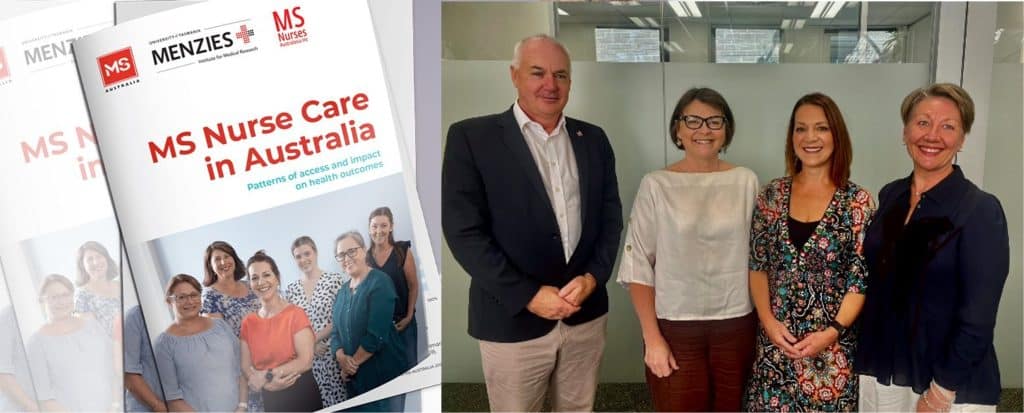
(L to R): MS Australia CEO Rohan Greenland; Assistant Minister for Health and Aged Care, The Hon Ged Kearney MP; MS Nurses Australasia Vice-President and MS Specialist Nurse, Belinda Bardsley; MS Australia Clinical Platform Coordinator and former MS Specialist Nurse, Dr Therese Burke AM; 22 Feb 2023
People with MS helping people with MS
The AMSLS has been running for 21 years, during which we have seen incredible technological advances in diagnostic capacity, brain imaging and new disease-modifying therapies.
Natural disasters, a global pandemic and the rollout of the NDIS have all had a significant impact.
As the national MS landscape continues to evolve, so do the needs of Australians with MS.
We are indebted to our incredibly generous AMSLS participants, and their ongoing support for the study is giving us the traction we need with government.

However, to ensure our study continues to represent the needs of all Australians with MS, we need more people to join us and share their experiences.
If you can help with surveys, we would love to include your voice. Upcoming studies include a detailed analysis of the economic costs of MS to individuals, as well as the NDIS experience for people with MS.
Contact the AMSLS team to find out more or to become a participant.

